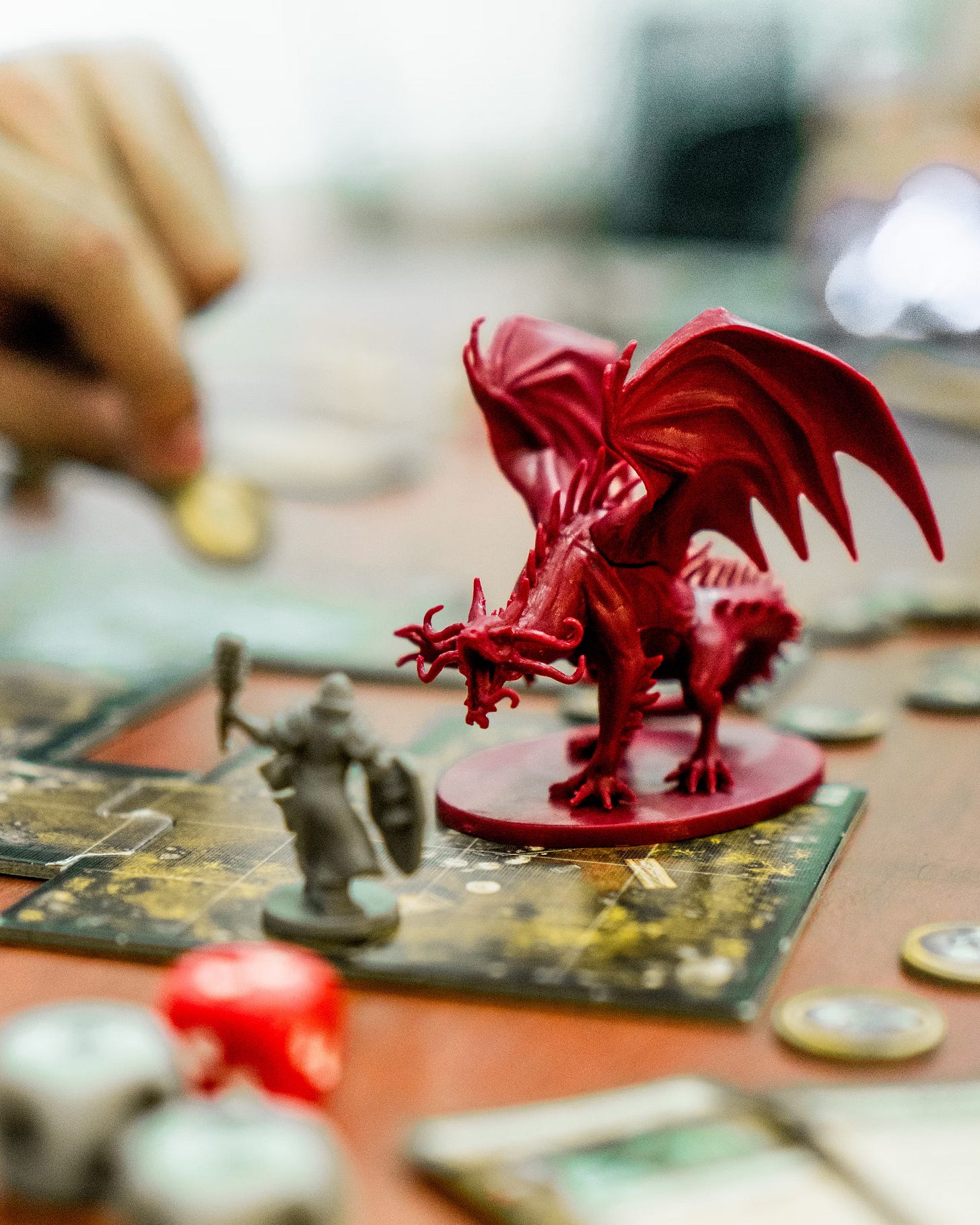Happy Friday, Blue Roomies!
Welcome to week seven of our exploration of Emergent Strategy by adrienne maree brown, a book about how we make sustainable, transformative change.
Here’s an introduction to the series, and here’s element one: fractals, element two: intentional adaptation, element three: interdependence, element four: nonlinear and iterative, and element five: resilience.
Soundtrack for this installment:
Element six of Emergent Strategy is creating more possibilities. This chapter nudges us to consider many outcomes and orienting toward hope rather than despair. Or as my therapist always reminds me when I tend to catastrophize, “You don’t know the future.” Here’s a section that spoke to me:
I have been in countless meetings where there was a moment of creative abundance and energy, and then someone said we needed to pick one thing to get behind, or a three- or five- or ten-point plan. What came next was sometimes very compelling and visionary. Other times—often times—it was reductionist, agreeing on the lowest common denominator, the least exciting thing, because that was the only place there was unity. There was often a general sense of dissatisfaction and collective shrugging into this unity that was not invigorating. Authentic, exciting unity takes time, and lots of experimenting.
The other tragedy of this quick narrowing is that people get left out, not just in a slightly hurtful way, but left out of how we construct every aspect of society, infrastructure and culture.
It isn’t that we never need sharp, directed, focused and even single-issue moments—we absolutely do. It’s just that we live in a system that thrives when conditions are abundant and diverse, in a universe that holds contradictions and multitudes, as if we can’t tolerate the scale of our own collective brilliance. (Emergent Strategy p. 156)
I’m away this week for preacher camp, and in lieu of some new thoughts, here’s a short section from Hope: A User’s Manual that came to mind when I considered this theme. (Although the Improv book has a bunch about creating new possibilities too!)
When George Floyd was killed by police in Minneapolis, people of all races and backgrounds took to the streets. Businesses issued statements and invested in staff to address diversity, equity, and inclusion. Books about racism flew off the shelves. And a large contingent of White people began antiracism work for the first time.
Over time, a lot of the zeal faded. Some people lost motivation, the immediate needs of their lives taking over. For others, the work proved too destabilizing to the foundational stories on which they’d based their lives. Some have stuck with the task, realizing it’s the work of a lifetime. But many of us still secretly hold out hope for the three- step plan, the antiracist job description, the definitive set of actions that, once checked off, will fix everything. But it’s as true of antiracism work as it is of any justice work—anything worth doing will not be completed quickly and easily. There is no end point.
In his book The Infinite Game, Simon Sinek makes a distinction between finite and infinite games. A finite game has set players, well-articulated rules, and a specific objective. Infinite games have a variety of players, each with different objectives, and there’s no definitive conclusion; the goal is to keep playing. Baseball is a finite game. Life is an infinite game. Sinek argues that much of business is played like a finite game, with winners and losers, successes and failures. But business is actually an infinite game, requiring an abundant, open- ended mindset. Finite-minded organizations jockey with one another for a sliver of a prebaked pie. Infinite-minded organizations learn how to bake additional pies.

Justice work is an infinite game. The goal is to keep the game going, to make the world better so we can keep making the world better.
In the hours before Jesus’s arrest and crucifixion, an unnamed woman comes and anoints his head with expensive oil. His disciples scoff at the woman’s extravagance; after all, the oil could have been sold and the proceeds used to help those in need. Jesus praises the woman for doing a beautiful thing for him and chastises the naysayers, saying, “you always have the poor with you . . . but you will not always have me.” The verse has vexed justice- hearted people for centuries. But Jesus isn’t throwing up his hands and saying that poverty is inevitable, so what’s the point. He’s saying, “You’ll never not have work to do, so plan accordingly.” He was describing the infinite game. Each victory opens a new set of opportunities. A conclusion to one story sets us up for a sequel.
~
Your Turn
How do you react to the idea that “you don’t know the future”? Does that comfort you? Make you anxious? Something else?
Think about the organizations you’re a part of. In what ways do they create room for possibility? Who’s around the table when decisions get made? What are the benefits? What does it cost you to operate the way you do?
Are you playing an infinite game in a finite way? How could that shift?
~
What I’m Up To
Recordings! Here’s a conversation with
of Imago Scriptura on the first three episodes of season 2 of Andor. We’re calling it Pop Culture Pastors Hour.And here’s last Sunday’s sermon for Creation Care Sunday:
~
Link Love
Awhile back I did a three-part series on managing change, and as I think about this matter of creating possibility as individuals and communities, they seemed pertinent. The first focuses on the WHAT of change-making, the second helps groups identify the HOW, the third focuses on the WHY.
Steady on.





